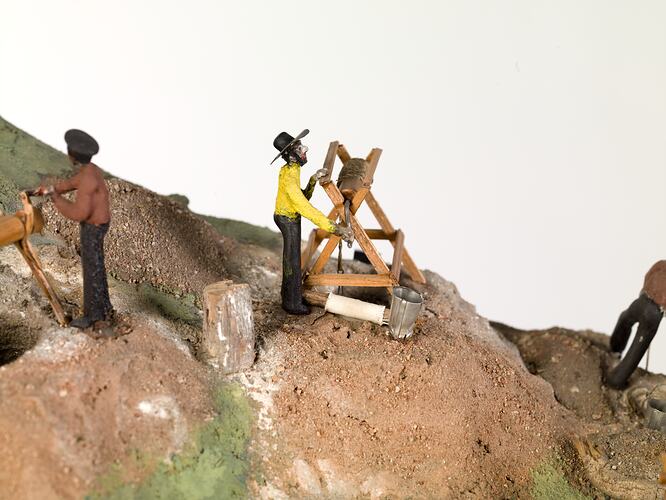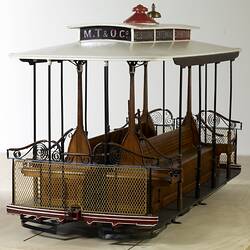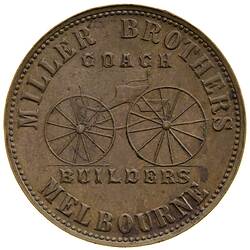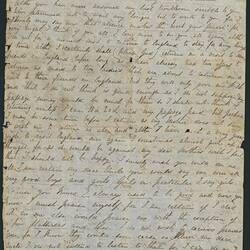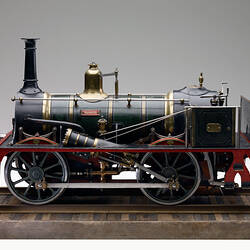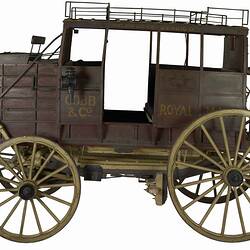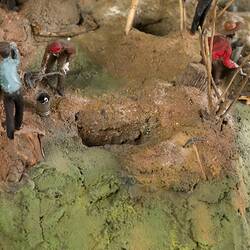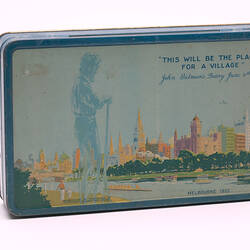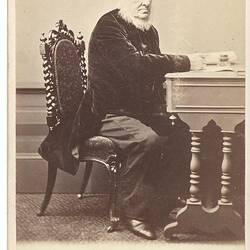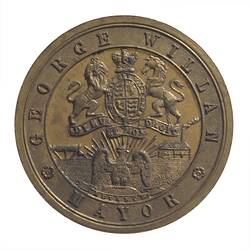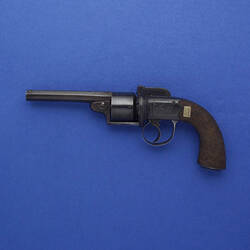Summary
Events that occurred in early Melbourne 1850-1880 as outlined in Museums Victoria's Melbourne Story exhibition.
Hot on the heels of separation from New South Wales and self-government for Victoria came the discovery of gold, and the massive impact of the gold rushes on Melbourne's development. This section of the exhibition explores how the city's population increased, swollen not only by the arrival of gold-seekers en route to the fields, but also by the return of many who did not find the wealth they sought. An estimated half a million people arrived in Victoria between 1850 and 1860. The infant city struggled to absorb this influx and to provide housing, services and security. Men outnumbered women two to one, drunken diggers filled streets where gun shots echoed and open sewage drains polluted the air, and child mortality was high. Within a short time, the demands of diggers and the wealth generated by the rush began to transform Melbourne. Cobb and Co coaches pulling out of Bourke St to connect the city to emerging country towns were joined in 1862 by developing rail and telegraph services.
But the growing wealth of the country also bred fear. How was Melbourne and its burgeoning wealth to be protected? Fortifications and gun batteries appeared alongside more reassuring monuments to growth, like the Melbourne Zoo and the National Museum. These institutions were testament not only to the city's new wealth and civic pride, but also to the determination of its inhabitants to impose a distinctly European presence on an old land.
The foundations of an Australian version of civic life and governance were laid in these years. These foundations were based on the concessions won by miners in the Eureka uprising (including - eventually - a vote in the new Parliament), but also on the restrictions imposed on Chinese immigration, and the re-settlement of Aboriginal people on stations and missions. This re-settlement program was a response to both the failure of an early system of protection of Aboriginal people, and the desire to control and 'civilise' them.
More Information
-
Keywords
-
Localities
-
Authors
-
Article types
